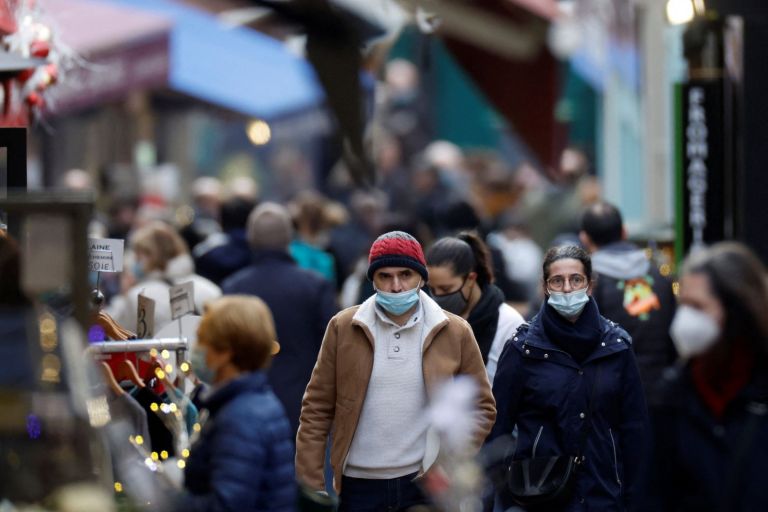Greece and the whole world welcomed 2022 with a raging public health crisis driven by the extremely transmissible COVID-19 Omicron variant, which is certain to disorganise economic and social life.
Since the end of December, the daily number of infections rose exponentially all over the world, skyrocketing from 300,000-400,000 to over one million.
Our country and society, which are active and open to the world, could not possibly have been exempted from this exceptionally transmissible wave of the COVID-19 pandemic.
That explains the steep rise in infections, despite public health measures and restrictions.
Yet, in Greece and internationally, the huge surge in infections has not for the time being been accompanied by a corresponding spike in hospitalisation, intubation, or deaths, or by additional pressure on the National Health System.
It is indicative that internationally during the Christmas holiday there were about 7,000 deaths daily, even though the number of infections had soared to over one million. The situation in our country is rather analogous.
The common conviction of the international and Greek scientific community is that the Omicron variant’s morbidity is reduced, which appears to support the projection that as it multiplies it degenerates, following the natural development of all transmissible viruses.
In that sense, we can be guardedly optimistic that the evolving public health crisis can be checked during this year.
Whatever the case may be, panic is not the answer. Greece will certainly be tested, as will the rest of the world, by the Omicron variant in the first three months of the year, but it is no longer defenceless.
Moreover, the National Health System, despite the huge strain on doctors and healthcare workers and obvious deficiencies, has experience and accumulated knowledge. That allows an immediate reaction and the capability of managing any conditions, even the worst.
If public health personal protection measures are faithfully implemented, if social distancing is intensified, and if the vaccination rate dramatically rises, then this wave of the pandemic can also be checked, especially if Omicron’s lower morbidity rate and its degenerative character are proven.
If things proceed in this manner, we must prepare to confront a host of other challenges in 2022.
The world, despite the public health crisis, remains active, changeable, and intensely competitive and is preparing for a dynamic return to a new normalcy in a post-pandemic environment.
A crucial geopolitical reordering is underway. The wave of inflation is affecting everyone and everything. The energy and digital transformations are major global changes that will guide the restructuring of economies.
During the pandemic crisis, Greece managed to be at the centre of this process or economic reformation.
In tough conditions, it managed to once again become attractive to foreign investors and became an international investment destination.
In 2021, our country impressively recouped most of the important losses caused by the first pandemic shock, while at the same time it secured major funding for the modernisation and productive restructuring of the Greek economy.
One might safely say that Greece accrued enough post-pandemic capital to bring great progress to the country and its citizens.
For Greece, 2022 may prove to be a pivotal, milestone year.
As cynical as it may sound, the gloom of the pandemic has created a unique opportunity, which the government and the entire political system have a duty to utilise.
They must protect this opportunity from the usual complexities that arise from a coming electoral cycle.



